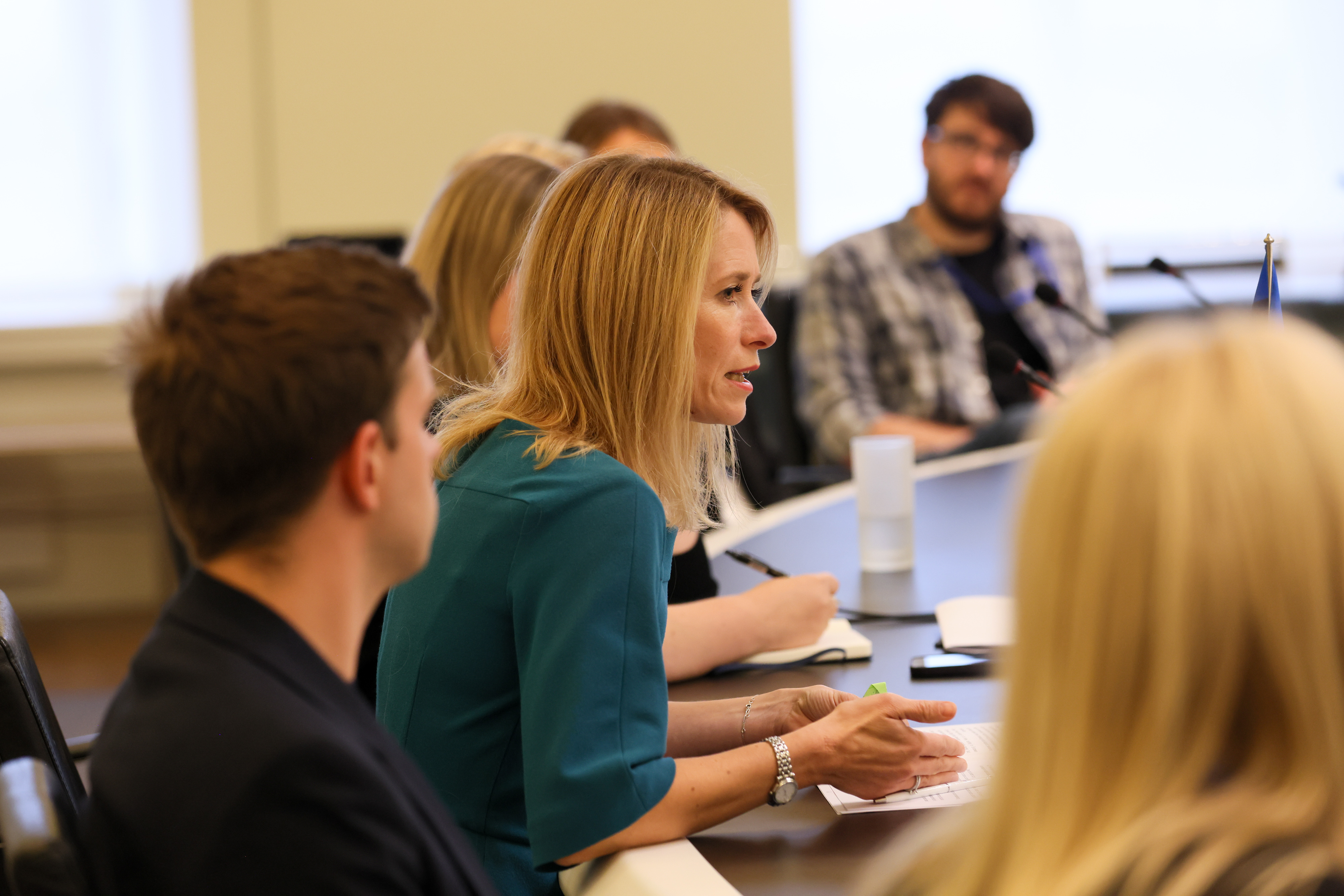Is the EU’s startup central the next Silicon Valley?
Estonia is home of the most unicorns per capita in Europe

The Estonian capital city Tallinn may not look like Silicon Valley. With many of its tech start-ups operating out of converted warehouses, it shares more in common with London’s neighborhoods of Shoreditch and Hackney. Like the ID cards every Estonian citizen must carry, pro graffiti, brickwork, and exposed pipes are mandatory. But its heart and its head lie in California.
It was Skype and the Soviets that started it all.
In 1964, the state took delivery of its first digital computer. By 2003, the Estonian-developed VoIP service changed how we communicated online. Two years later, eBay snapped it up for a cool $2.6bn.
TechRadar Pro headed east to explore how Estonia is building a “digital nation” – and what’s stopping us creating a digital world.
A digital nation of digital nomads
Digital Nations. Sounding like the title of an unwanted eBook promoted on LinkedIn, the phrase drips with the slippery speech of politics and marketing. Anywhere in the world might be a digital nation.
However, a little more substance lies behind these words: Digital Nations is a network of ten countries, including the UK, Canada, and New Zealand, “committed to harnessing the potential of digital technologies to improve their citizens' lives.”
For Estonia, which joined the EU in 2004, that has meant spinning up decades-worth of technological infrastructure in just a few short years. If you thought upgrading the whole office to Windows 10 was difficult, spare a thought for a government that was dealing with Soviet-era legacy tech and little else.
Are you a pro? Subscribe to our newsletter
Sign up to the TechRadar Pro newsletter to get all the top news, opinion, features and guidance your business needs to succeed!
“In 1991, when we regained our independence, we had to build everything from scratch,” Estonian Prime Minister Kaja Kallas told TechRadar Pro .” But we also had to change the mindset that this state is now ours. In the Soviet times, you didn't have any private or civil laws, because you didn't have any private property. And we had to build everything from scratch.”
The foundations of this digital nation are based as much on trust as laws, made between the citizens, their government, and private businesses, she adds.

“We have a very liberal approach to make sure the state is there as much as needed,” Prime Minister Kallas explained. “But not hindering businesses to provide very, very good environment for doing business. In schools, we even have entrepreneurial classes.”
Martin Villig, co-founder of ride-sharing app Bolt, echoed that thought.
“A key point for me is the government support. That means our Prime Ministers and Presidents have been really supportive towards startups and the overall tech community. So, they have promoted it on the one hand. But on the other hand, also, we have a twice -yearly round table with the Prime Minister where we review what are the actual current challenges in legislation, what’s the overall economic environment? And we can agree that, okay, let's focus on one or two aspects that we’ll try to fix in the next six months, twelve months.”
Partnering with the Estonian government and Startup Estonia, he said, enables the state to receive “first-hand feedback from the community, from the founders. How is the new legislation that is proposed? Does it sound reasonable?”
Today, the Baltic state boasts a fast-growing digital economy and the most unicorns per capita. It’s an impressive hit-rate for a country where as late as 1991 owning a private company was forbidden.
Almost 10,000 jobs that have been created across its startup sector – the fastest growing sector of the country’s economy. Alongside Skype and Bolt, Estonia now counts Wise, Playtech, and Pipedrive among the success stories of which its tech innovators remain fiercely proud.
So, why do Estonians readily embrace the startup culture? And what’s the catch?
The e-state of Estonia
Estonia is, for all intents and purposes, a digital state. Almost every interaction between a citizen and its government is conducted online.
Every citizen over the age of 15 must carry a mandatory, encrypted ID card that lets Estonians vote online, access private emails and banking and medical records. Through the e-Residency program, businesses worldwide can set up an EU-based company entirely online before they finish a pint of Kali. It’s simple, streamlined, and effective.
“As a lawyer by profession, I can say that our tax lawyers are really out of business,” Prime Minister Kallas laughs. “Or actually, they never had a business, because everybody knows how to do taxes, and you don't need those big booklets to guide you through the taxes or for advisors to do so.”
The common joke around these parts is that citizens speed-run their tax returns - just over a minute is the current record, we’re told. This is an e-state in hyperdrive.
Delivering that level of service demands an enormous transfer of personal data from the individual to the private and public sector. The Prime Minister noted that, “e-security and e-privacy is related to the trust we are building. but it's also, as I say, our system, how we can trust who sees your data, how can you protect your privacy?”
Unlike cookie notifications – a system Kallas believes is flawed since users accept them without knowing how their data is used – the PM said, “with our system, you can see who has your data. For example, when you want to have a bank loan, then you can give access to financial corporations to look at the data.”
She also raises the prospect that privacy is a generational concept – and one to be safeguarded. “People younger than us are putting everything online. Like, everything they eat, everywhere they go. And privacy is not such a big issue for them, because they put it all out there. But it's also our obligation to protect them, I think. So, having the equipment, having the right systems so that you can check who has seen your data, and you can trust that, but also education [to see] how these things are used.”

For western democracies, this is a moral minefield and a security nightmare – and electoral suicide, too boot. Estonia’s e-government system saves citizens an estimated 1,345 years of working time each year. You’ll be waiting longer than that to hear back from any Congressman willing to champion mandatory ID cards.
But Estonia’s first female PM remains unswayed. “We could solve so many problems if we had e-identities on the internet, like we have in the real world. I mean, in the real world, when an underage person goes to a store and wants to buy a pornographic magazine or something, they won't sell it to him, because it's clear that he’s underage, but on the internet, you just click that you're eighteen. We could solve that issue if we had e-identities like we have in Estonia.”
Arne Ansper also believes the mandatory e-identity system was necessary.
The 52-year-old CTO of Cybernetica effectively masterminded the country’s entire e-governance scheme, as his X-Road software, first appearing decades ago in his MSc thesis, is the secret sauce connecting private and public sector organizations to a vast hub of personal data.
While e-ID cards have proved commonplace and uncontroversial for most Estonians, Ansper admits that rolling out the project would’ve been impossible had it been put to a vote - something that in the current climate may be unthinkable for most western democracies.
There’s another issue, too. Ansper explained to TechRadar Pro that, in his experience, Western countries view personal data as every minute detail held by the individual. For Estonians, personal data is considered generally public information. He reels off examples of this limited but valuable data. Name. Address. Mobile number.
Trying not to sound like the NKVD officers who once stomped the cobbled streets of the old town, we asked to see Ansper’s identification. Inspecting the card, similarly sized though slightly thicker than a driving license, we promised not to steal the data printed on it.
He shrugged, relaxed. Data loss isn’t a concern, he said. Like many modern banking apps, without authenticating an interaction on his phone, we can do nothing with his information. It was only a matter of time before two-factor authentication jumped from email accounts to personal identity.
Ansper explained that this is the mistake made by countries like the US and the UK. They use data like social security and NI numbers as both a means of verifying the user and authenticating an interaction. “Nations cannot afford to be inefficient,” he stated firmly.
Small country, global market
Technology is so integrated into the daily lives of Estonians, it’s unsurprising that it’s become a digital nation.
One of the country’s biggest strengths is its small size. The entire country has half the population of Silicon Valley alone. To Martin Villig’s mind, Estonian tech firms are more focused on competing in the global market than against each other at home.
“That is probably the biggest difference compared to Germany, France, US, where you can build a massive company in your home market, and you don't need to go abroad. In our case, almost no one is competing. The only competition is talent.”
“It seems like, as a small country, we have an edge with intensity of entrepreneurship,” Villig added. “I don't know any other country where all the top founders would be in the same community and we are actively supporting each other. And besides our own members, the community is so small, and more experienced founders are really open also to meet new younger founders.”
While Estonia’s zeal to innovate shines like the sun-kissed Silicon Valley, how can the country beat US tech giants if it only follows in its footsteps?

The Bolt CEO smiles, stating that Estonia has inverted the old business motto ‘fail fast, fail often’ beloved by agile American startups.
“The common recommendation is if your business model is not working, failing fast, then do something else. But what we see in Estonia, Estonian founders don't fail. Even if the business is not working, they are bootstrapping years and years and years. And they keep pushing. And we have many examples, where they actually find the way you on the fifth year, on the sixth year.”
Villig highlights Ready Player Me as a classic example. This seven-year-old firm offers a “passport to the metaverse”, letting developers create a single avatar carried across different virtual worlds. For the first five years, it had trouble securing funding for the business model.
“They didn’t stop,” Villig said. “They kept growing, figuring out what to do. I would say, probably in other markets, people would have stopped on the second year.”
Technological innovation abounds across Estonia – particularly in delivering the utopian smart city dream. It offers a true glimpse of the future. For the short-term, however, it shall likely stay a dream.

While the assets are on their way, they remain far too expensive to roll-out on any meaningful level. TechRadar Pro rode Auve Tech’s eight-seater self-driving bus, a vehicle that’s both impressive – and impressively uneconomical. Despite a lower capacity, it still requires both a remote driver and an onboard guard ready to slam on the emergency brakes if necessary.
Bercman Technologies’ smart crossing has been making waves, too. Using built-in cameras and sensors to alert drivers of pedestrians crossing the street, it offers a genuine way to save the lives of road users. But at 10-times the cost of a standard crosswalk, it’s difficult to see many local authorities upgrading to smart street furniture, especially at a time of economic uncertainty.
Internal affairs
Estonia’s e-revolution is undeniably exciting. The speed and scale of its growth puts more advanced nations across western Europe to shame. The services, for citizens and tech startups, appear efficient. It holds the promise found in so many sci-fi books, films, games, and TV shows. But it’s distinctly Eastern European in delivery.
During our visit, TechRadar Pro also visited the University of Tartu’s Estonian Genome Center. Here, personalized medicine is the order of the day. Over 200,000 participants have so far donated their blood to the Estonian Biobank. Soon, the first applicants will receive genetic feedback on the results. Cancers might be uncovered. Medical issues highlighted. All that information will be tied, inevitably, to the individual’s e-identity. The life-changing research wouldn’t feel out of place on the medical bay of the USS Enterprise.
However, when the possibility of donating our own blood was raised, we felt uncomfortable. Not that we wouldn’t want to know if we’re suffering from hypothyroidism or hypochondria. Our decadent western sense of identity had us wondering what really happens to that information. We’d only feel comfortable sharing this with our doctor – who else can see it, use it. or act on it? Could, for example, insurers gain access to the data and base decisions upon its results?
We’re assured by our host that this is impossible. That there are strong laws against this. But laws were made to be broken – usually by those who made them in the first place.
Personalized medicine, arguably the most sensitive and private of our personal data, offers the strongest argument in favor of self-sovereign identity and the decentralized data storage pods championed by Sir Tim Berners-Lee. That’s likely to be a much more palatable long-term solution for citizens and data-conscious companies of western digital nations.
- Stay connected with the best alternatives to Skype

Steve is B2B Editor for Creative & Hardware at TechRadar Pro. He began in tech journalism reviewing photo editors and video editing software at Web User magazine, and covered technology news, features, and how-to guides. Today, he and his team of expert reviewers test out a range of creative software, hardware, and office furniture. Once upon a time, he wrote TV commercials and movie trailers. Relentless champion of the Oxford comma.